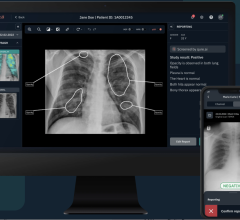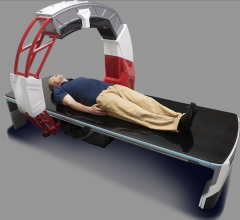
June 29, 2011 – The University of Chicago is allowing Pinnacle Oncology to acquire its technology and intellectual property rights for the development of a compound, amifostine, to prevent genomic instability caused by a variety of sources of ionizing radiation exposure, including common computed tomography (CT) scans.
Amifostine was initially developed by the U.S. Army to protect military personnel from the toxic effects of radiation exposure in the event of a nuclear war. Animal studies revealed that amifostine is very effective in protecting against genomic instability and associated long-term genomic damages resulting from radiation exposure, such as from CT scans and other diagnostic radiology and radiation oncology procedures that lead to DNA damages, chromosomal aberrations and gene mutations, all of which are associated with the cancer development processes.
"There are many potential uses for amifostine," said David Gardina, professor of radiation and cellular oncology at the University of Chicago and inventor of the technology behind the development of amifostine as a genomic stabilizing agent, "In addition to protecting against genomic instability, somatic mutagenesis and carcinogenesis, amifostine may also facilitate protection against germ line mutations. These exposures can come from a variety of sources, including common diagnostic procedures, such as computed tomography (CT) scans and more generalized environmental exposures, as recently evidenced by the nuclear plant accident in Japan." At present, none of these potential uses has been approved by the U.S. Food and Drug Administration (FDA).
According to Viren Grover, vice-chairman at Pinnacle Biologics, "It is clear that CT scans have revolutionized diagnostic imaging, and while they can provide great medical benefits, there is concern that diagnostic CT scans may be responsible for elevating genomic instability processes. Over 70 million CT scans were performed in the U.S. alone in 2007. A study led by National Institute of Cancer suggested that this may contribute to 29,000 new cancers each year, along with 14,500 deaths. Our proposal is to develop amifostine for the prevention of genomic instability in high-risk individuals undergoing CT diagnostic procedures."
For more information: www.pinnaclebiologics.com


 August 09, 2024
August 09, 2024 








